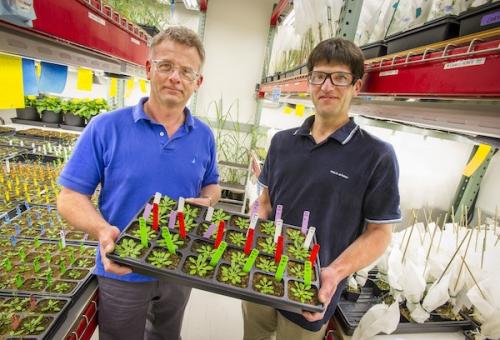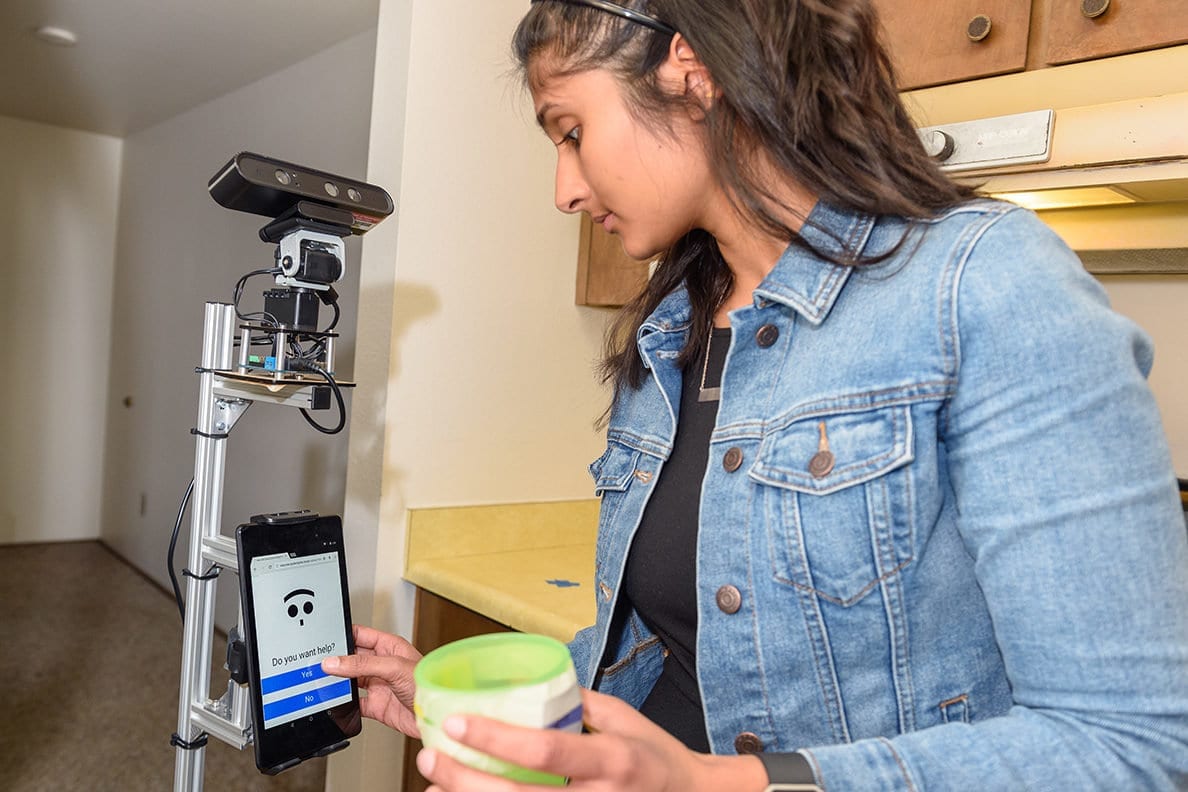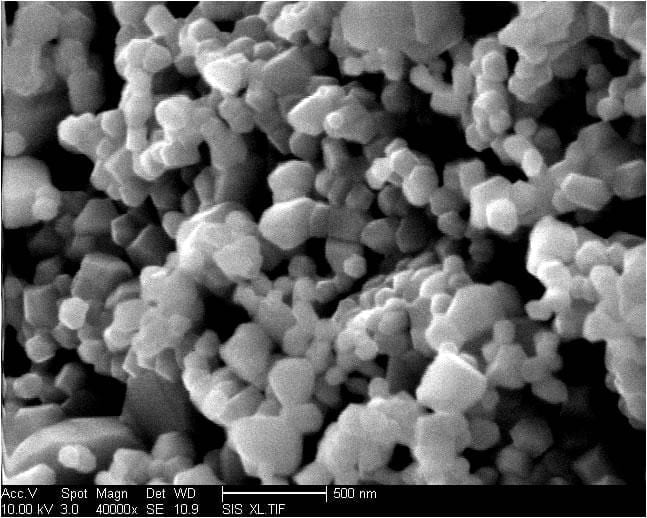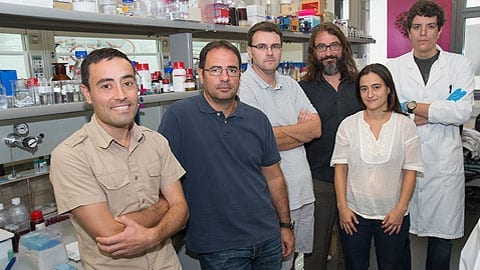
Imagine being able to precisely control specific tissues of a plant to enhance desired traits without affecting the plant’s overall function.
Thus a rubber tree could be manipulated to produce more natural latex. Trees grown for wood could be made with higher lignin content, making for stronger yet lighter-weight lumber. Crops could be altered so that only the leaves and certain other tissues had more wax, thus enhancing the plant’s drought tolerance, while its roots and other functions were unaffected.
By manipulating a plant’s metabolic pathways, two scientists at the Department of Energy’s Lawrence Berkeley National Laboratory (Berkeley Lab), Henrik Scheller and Dominique Loqué, have figured out a way to genetically rewire plants to allow for an exceptionally high level of control over the spatial pattern of gene expression, while at the same time boosting expression to very high levels. Now they have launched a startup company called Afingen to apply this technology for developing low-cost biofuels that could be cost-competitive with gasoline and corn ethanol.
“With this tool we seem to have found a way to control very specifically what tissue or cell type expresses whatever we want to express,” said Scheller. “It’s a new way that people haven’t thought about to increase metabolic pathways. It could be for making more cell wall, for increasing the stress tolerance response in a specific tissue. We think there are many different applications.”
Cost-competitive biofuels
Afingen was awarded a Small Business Innovation Research (SBIR) grant earlier this year for $1.72 million to engineer switchgrass plants that will contain 20 percent more fermentable sugar and 40 percent less lignin in selected structures. The grant was provided under a new SBIR program at DOE that combines an SBIR grant with an option to license a specific technology produced at a national laboratory or university through DOE-supported research.
“Techno-economic modeling done at (the Joint BioEnergy Institute, or JBEI) has shown that you would get a 23 percent reduction in the price of the biofuel with just a 20 percent reduction in lignin,” said Loqué. “If we could also increase the sugar content and make it easier to extract, that would reduce the price even further. But of course it also depends on the downstream efficiency.”
The Latest on: Artificial positive feedback loop
[google_news title=”” keyword=”Artificial positive feedback loop” num_posts=”10″ blurb_length=”0″ show_thumb=”left”]
via Google News
The Latest on: Artificial positive feedback loop
- The race for human-AI interaction usage data is on—and the stakes are highon April 24, 2024 at 2:26 pm
AI interaction data could help Meta pull ahead in the AI race. For the past year, OpenAI’s GPT-4 has been the dominant large language model. The LLM’s popularity dwarfs that of rival offerings from ...
- Aramco’s Venture Capital segment to invest USD 200-350 Mn in Indian startupson April 24, 2024 at 8:52 am
Through its venture financing arm, Prosperity7 Ventures, Saudi Aramco, the multinational energy behemoth, is proactively entering India's vibrant startup scene.
- A National Security Insider Does the Math on the Dangers of AIon April 23, 2024 at 4:00 am
Jason Matheny, CEO of the influential think tank Rand Corporation, says advances in AI are making it easier to learn how to build biological weapons and other tools of destruction.
- To Get Ahead, Digital Health Should Look AHEADon April 19, 2024 at 7:05 am
The All-Payer Health Equity Approaches and Development (AHEAD) program may have some flaws, but its fundamental focus could result in a much more welcoming environment for digital health solutions.
- What is the Biggest Challenge for Marketers Today?on April 10, 2024 at 10:01 am
In the ever-evolving realm of marketing, Chief Marketing Officers are at the forefront of tackling some of the most pressing challenges.
- 1 "High Conviction" AI Stock That Morgan Stanley Analysts Loveon March 31, 2024 at 2:40 am
This month, Morgan Stanley strategist Edward Stanley revealed the investment firm's top high-conviction stock picks that will directly benefit from the rise of artificial intelligence (AI).
- 1 "High Conviction" AI Stock That Morgan Stanley Analysts Loveon March 30, 2024 at 10:40 pm
Shopify stock offers a great way to bet on the rise of artificial intelligence ... these types of marketplaces generate strong positive feedback loops. What that means is that the larger these ...
- AI Homogenization Is Shaping The Worldon March 4, 2024 at 10:40 pm
I’m a leader advancing Digital for Good and AI for positive change ... these systems create a feedback loop that narrows the scope of exposure to new choices. This self-reinforcing cycle ...
- The stock market has flipped from 'sell the rip' to 'buy the dip,' and that should help push the S&P 500 above a key resistance levelon May 18, 2023 at 1:12 pm
"This is creating a positive feedback loop, in the sense that capital invested ... cap tech stocks have positive leverage to the growing artificial intelligence opportunity, that regional banks ...
- UN75: An Unexpected Message from the Futureon February 28, 2022 at 12:01 pm
Information processing, data sciences, machine learning and more general artificial intelligence have all had a role to play in containing the consequences of the positive feedback loop of carbon ...
via Bing News










